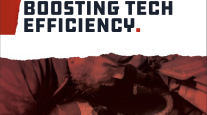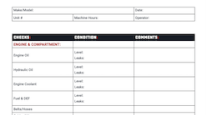Senate Panel OKs Tax Relief For Equipment, Alt Fuels
Senate Finance Committee members agreed on a broad package of tax-extension provisions before leaving the capital for summer break, including those important to trucking.
The Senate’s tax specialists addressed biodiesel, alternative-fuel infrastructure, liquefied natural gas and bonus depreciation. The bill still must pass the full Senate and get matched with House tax legislation, but having passed the committee 23-3, it gives an indication of what the Senate wants to do.
Majority Leader Mitch McConnell (R-Ky.) said Aug. 6, the Senate’s last day in session before adjourning until September, that he would like the full chamber to address tax extension before the end of the year.
Three tax credits related to biodiesel lapsed Dec. 31, but the committee wants them extended through the end of 2016. The credits benefit producers of pure biodiesel, or B100, companies that blend B100 with conventional diesel and agricultural suppliers of biodiesel.
Truck stop operators and other industry groups stated their opposition to the biodiesel provision sponsored by Sens. Charles Grassley (R-Iowa), Maria Cantwell (D-Wash.) and John Thune (R-S.D.).
Natso Inc., the Petroleum Marketers Association of America and two groups representing gasoline and diesel retailers said the Finance Committee bill could result in “drastically changing blending dynamics.”
The criticism from Natso and its allies said the credit has rewarded the consumption of biodiesel within the United States in the past, but the new version is linked to the production of the combination fuel.
“This is contrary to the original intent of the biodiesel tax credit, which was to promote the use of biodiesel in the marketplace and ultimately reduce our dependence on fossil fuels,” the Natso-PMAA statement said.
Bonus depreciation of business equipment, including tractors and trailers, also lapsed at the end of 2014. The Finance proposal would extend the process for equipment purchased through 2016 or 2017, depending on what is purchased.
The proposal would make it possible to write off more of the value of the property in the year it is purchased. Without the extension, a highway tractor would be amortized over 3½ years, including 33.33% in the first year.
If the Finance proposal becomes law, the 3½-year period stays the same, but first-year depreciation doubles, rising to 66.67%.
“That’s front-loading the schedule quite a bit. If you’re a business owner, you’re going to be happy about it,” said Andy Belser, a partner with accounting firm Katz, Sapper & Miller in Indianapolis.
Trucking companies generally are doing well now, said Belser, whose firm has a large transportation practice. An extra opportunity for depreciation would be helpful for firms seeking to manage cash flow and tax payments, he said.
The timing of the bonus depreciation extension is curious, though, Belser added. New, heavy-duty U.S. truck sales have been booming this year, which is currently on track to be one of the best ever. That led him to wonder why there should be a tax incentive to buy more trucks.
“Bonus depreciation really doesn’t have much of an impact now,” he said. “People are buying trucks based on their need for them, not because of tax laws.”
One part of the tax extenders package already has made it into law: tax-equalization for natural-gas fuels. The extender on liquefied and compressed natural gas and propane as transportation fuel was moved into the three-month surface transportation extension President Obama signed into law July 31.
The new law taxes LNG, propane (also known as liquefied petroleum gas) and CNG based on energy equivalence with the two major petroleum fuels, diesel and gasoline.
The federal diesel tax is 24.3 cents a gallon and, for gasoline, it is 18.3 cents.
LNG had been taxed at the same rate as diesel, and the propane rate matched up with gasoline. The problem has been that a gallon of LNG has only 58% of the energy, or British thermal units, found in a gallon of diesel. A gallon of propane has 72% of the Btu as a gallon of gas.
As of Jan. 1, LNG will be taxed at 24.3 cents per diesel gallon equivalent, rather than per gallon, and propane will be 18.3 cents per gasoline gallon equivalent, rather than per gallon.
The tax on CNG remains at 18.3 cents per GGE.
Trade group NGVAmerica, which represents the natural-gas vehicle industry, lauded the change.
“This common-sense change will mean even greater savings on fuel costs [for LNG fleets], and it provides a powerful new economic incentive for those fleets considering the switch to this already low-priced, domestic fuel,” NGVAmerica President Matthew Godlewski said.



